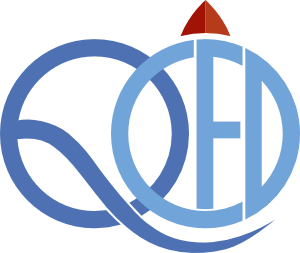Francesco Preti, Michael Schilling, Sofiene Jerbi, Lea M. Trenkwalder, Hendrik Poulsen Nautrup, Felix Motzoi, Hans J. Briegel.
Shortening quantum circuits is crucial to reducing the destructive effect of environmental decoherence and enabling useful algorithms. Here, we demonstrate an improvement in such compilation tasks via a combination of using hybrid discrete-continuous optimization across a continuous gate set, and architecture-tailored implementation. The continuous parameters are discovered with a gradient-based optimization algorithm, while in tandem the optimal gate orderings are learned via a deep reinforcement learning algorithm, based on projective simulation. To test this approach, we introduce a framework to simulate collective gates in trapped-ion systems efficiently on a classical device. The algorithm proves able to significantly reduce the size of relevant quantum circuits for trapped-ion computing. Furthermore, we show that our framework can also be applied to an experimental setup whose goal is to reproduce an unknown unitary process.
Cite as BibTeX
@article{Preti2024hybriddiscrete,
doi = {10.22331/q-2024-05-14-1343},
url = {https://doi.org/10.22331/q-2024-05-14-1343},
title = {Hybrid discrete-continuous compilation of trapped-ion quantum circuits with deep reinforcement learning},
author = {Preti, Francesco and Schilling, Michael and Jerbi, Sofiene and Trenkwalder, Lea M. and Nautrup, Hendrik Poulsen and Motzoi, Felix and Briegel, Hans J.},
journal = {{Quantum}},
issn = {2521-327X},
publisher = {{Verein zur F{\"{o}}rderung des Open Access Publizierens in den Quantenwissenschaften}},
volume = {8},
pages = {1343},
month = may,
year = {2024}
}